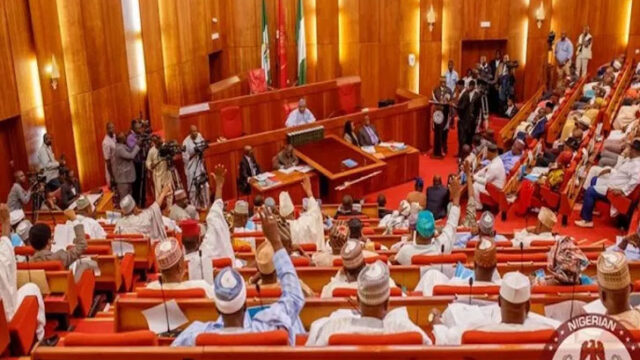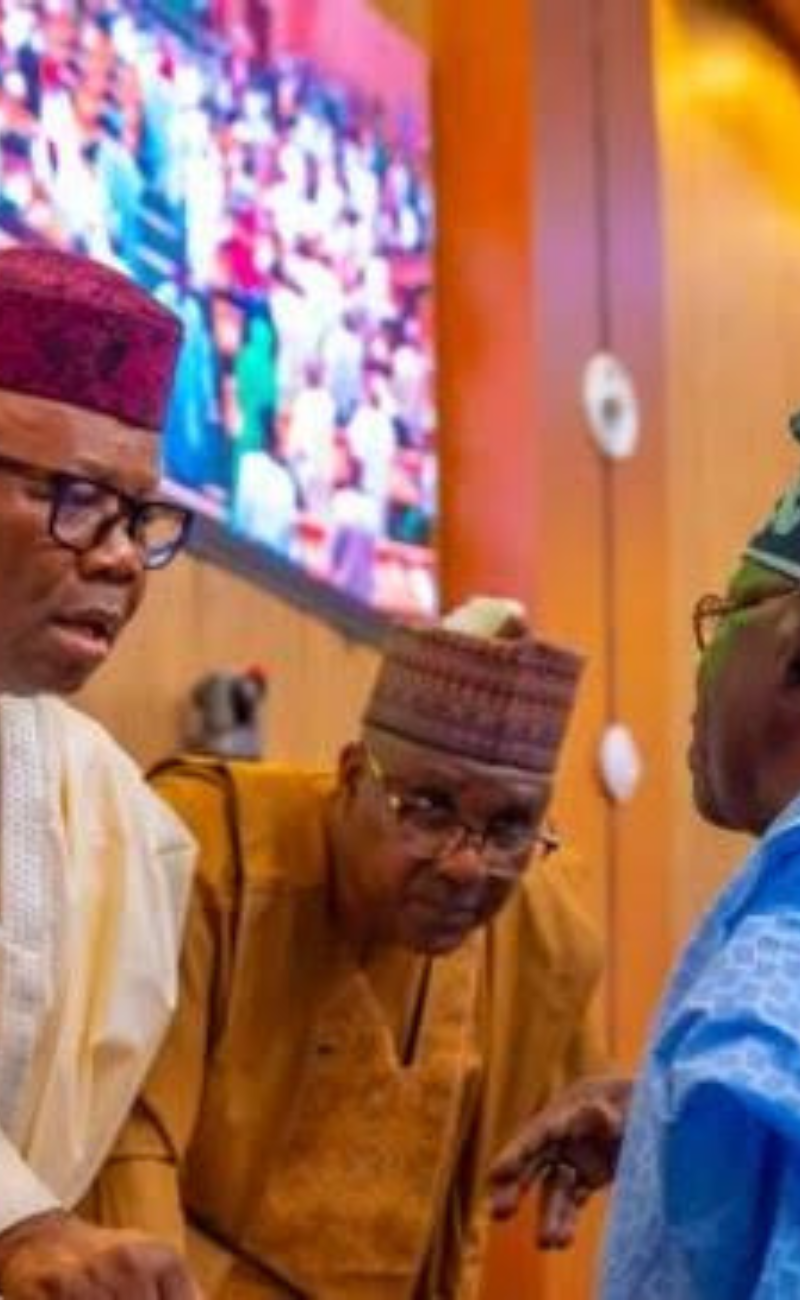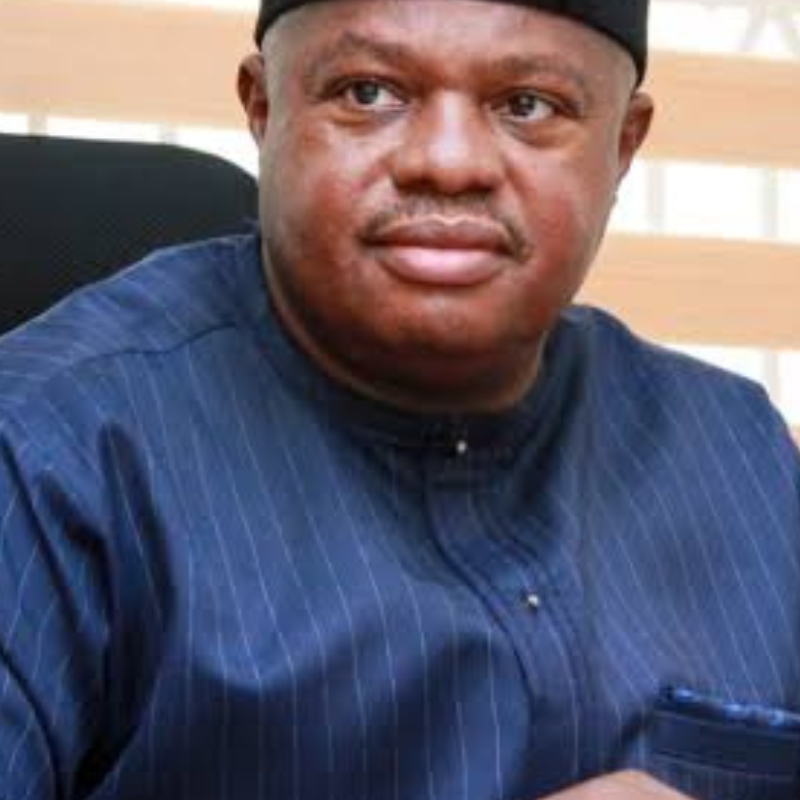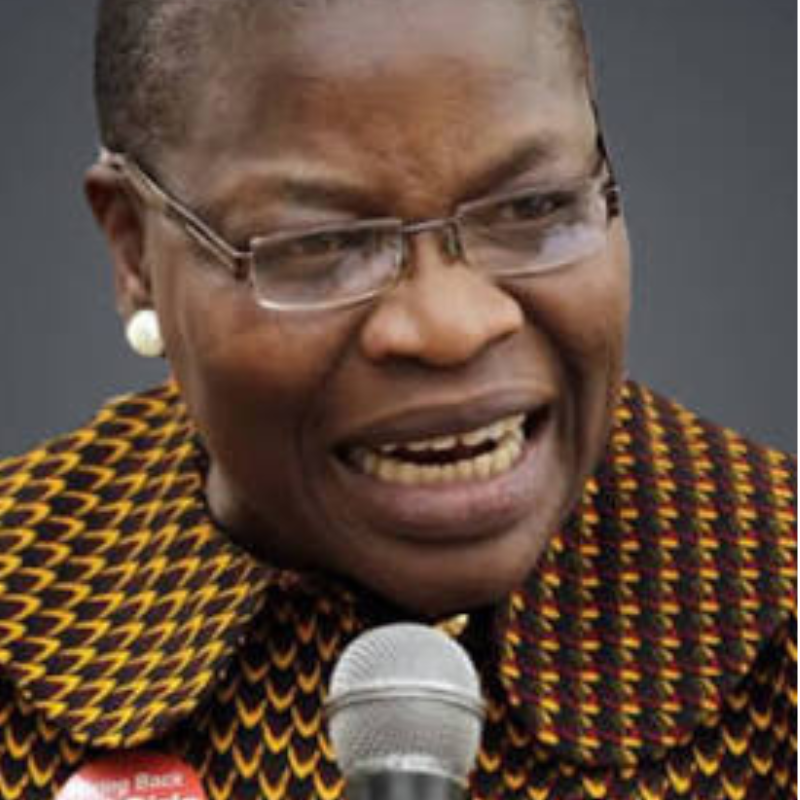The reforms were designed to address Nigeria’s weak tax-to-GDP ratio, reduce the cost of tax compliance, and broaden the revenue base without increasing rates.

The senate on Thursday, 8 May 2025, passed the remaining two of the four tax reform bills submitted by President Bola Tinubu in October 2024.
The two bills passed at Thursday’s plenary are the Joint Revenue Board (Establishment) Bill and the Nigeria Tax Bill. Their passage marks the conclusion of the senate’s legislative consideration of the executive-backed tax reform bills aimed at overhauling Nigeria’s fiscal system.
The President of the Senate, Godswill Akpabio, had on Wednesday announced that the remaining two bills would be taken on the next legislative day following the passage of the first two – Nigeria Revenue Service (Establishment) Bill and the Nigerian Tax Administration Bill.
Unlike the typical process where committee reports are presented before clause-by-clause consideration, the senate on Thursday skipped this step. This was because the Chairman of the Senate Committee on Finance, Sen. Sani Musa (APC, Niger East), had already presented the report during Wednesday’s plenary, and the senate had commenced detailed review in the Committee of the Whole.
As a result, lawmakers went straight into the clause-by-clause consideration of the remaining two bills, culminating in their passage.
Shortly after the passage of the remaining two tax reform bills on Thursday, the President of the Senate, Godswill Akpabio, disclosed that the version adopted by the senate differed from what was passed by the house of representatives. He attributed the divergence to the senate’s more “meticulous” approach to key provisions.
“If you notice, what we passed here is different from what the house passed because we are very meticulous. We actually ensured more security in certain provisions,” Akpabio said during plenary.
He added that the differences would be reconciled at the conference stage: “A conference committee will take it from there and look at what the senate has done and also look at what the house has done.”
Akpabio also invited senators to raise any outstanding issues with the bills when the votes of proceedings are considered next week: “If anybody still has any part of the bill, of the four bills that were passed, at the point of taking the votes of proceedings on Tuesday, please feel free to bring it up.”
To facilitate harmonisation, the senate set up a conference committee chaired by Sen. Yahaya Abubakar and vice-chaired by Sen. Musa Muhammad. Other members include Abba Moro, Eyinnaya Abaribe, Ezenwa Francis, Adetokunbo Abiru, Gbenga Daniel, Joel Onowakpo, Asuquo Ekpenyong, Tahir Monguno, David Jimkuta, Solomon Olamilekan, Adams Oshiomhole, and Babangida Hussaini.
READ ALSO: Senate passes two of four tax reform bills
Key provisions and highlights
1. Nigeria Tax Bill:
This bill consolidates multiple tax laws and introduces several reforms, including:
•Retention of VAT at 7.5%, but with a significant shift allowing VAT input on all items—including fixed assets, overhead costs, and administrative services.
•Consequential amendments to the Petroleum Industry Act (PIA) to transfer fiscal administration duties such as royalty and petroleum profit tax collection to the newly proposed Nigeria Revenue Service (NRS).
•Introduction of a N5 million fine for unauthorised disclosure of institutional information, aimed at strengthening data privacy and administrative discipline.
•Retention of company income tax at 30%.
2. Joint Revenue Board (Establishment) Bill:
This bill creates a formal framework for coordination between federal and state tax authorities. It seeks to:
•Harmonise tax policies across tiers of government.
•Reduce instances of multiple taxation and overlaps between federal and subnational jurisdictions.
•Improve taxpayer compliance by streamlining administration and aligning standards.
The committee also retained the development levy funding framework to sustain strategic agencies. Under this formula:
•50% of funds go to TETFUND,
•15% to the Nigerian Education Loan Fund,
•10% each to NITDA and NASENI,
•5% to the National Cybersecurity Fund, and
•10% to the Defence Security Fund.
Background: The four tax reform bills
The tax reform bill, transmitted to the National Assembly on 3 October 2024, was a major output of the Presidential Committee on Fiscal Policy and Tax Reforms, chaired by Taiwo Oyedele. The reforms were designed to address Nigeria’s weak tax-to-GDP ratio, reduce the cost of tax compliance, and broaden the revenue base without increasing rates.
Below is a summary of all four bills:
Nigeria Revenue Service (Establishment) Bill – Establishes the Nigeria Revenue Service (NRS) as a unified body to replace the FIRS and harmonise federal tax administration.
Nigerian Tax Administration Bill – Establishes specialised courts to expedite tax-related disputes and improve enforcement.
Joint Revenue Board (Establishment) Bill – Formalises coordination between federal and state tax agencies to streamline administration and curb multiple taxation.
Nigeria Tax Bill – Consolidates key tax laws, introduces fiscal controls, simplifies VAT and company tax systems, and proposes structural reforms to existing legislation including the PIA.
With the conclusion of legislative work on all four bills, it is expected that there will be harmonisation between the senate and the house of representatives before presidential assent.




